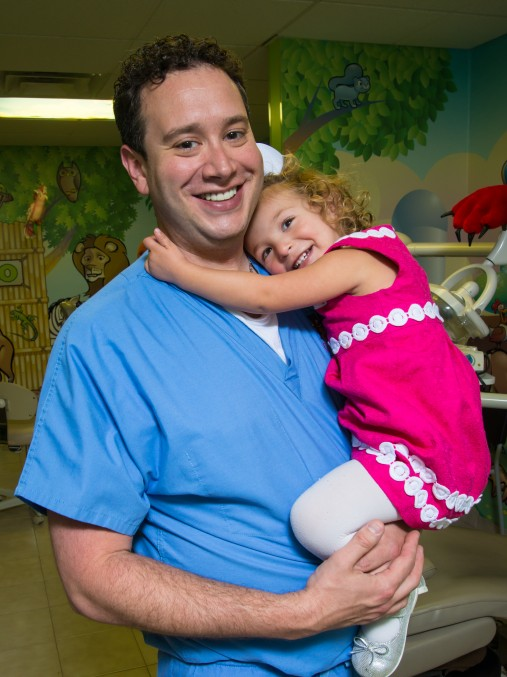ABC Children’s Dentistry is proud to partner with Toys for Tots!
Donate a new, unwrapped toy at our office during regular business hours this this holiday season. Thank you for helping brighten a child’s holiday!
Welcome
When you visit our office, your child’s comfort and smile is our top priority. Our entire team is dedicated to providing your child with the personalized, gentle care that they deserve. Part of our commitment to serving our patients includes providing information that helps them to make more informed decisions about their oral health needs. This website is a resource we hope you’ll find both useful and interesting.
We genuinely hope this site is helpful to you in learning more about our practice, dental conditions and treatments, dental recommendations, and more.

Jeffrey Singer’s Practice has
been awarded as a top
Dentistry practice with some of
Voorhees Township’s best Dentists.
Verified by Opencare.com
Notice of Non-Discrimination



ATENCIÓN: si habla español, tiene a su disposición servicios gratuitos deasistencia lingüística. Llame al (856) 783-3515.
注意:如果您使用繁體中文,您可以免費獲得語言援助服務。請致電 (856) 783-3515.
OUR PEDIATRIC DENTAL SERVICES
MEET DR. SINGER
Dr. Singer’s philosophy is that Pediatric dentist’s can have a profound effect on the lives of young children. As the first dentist a child encounters, pediatric practitioners can either ease their fears or enhance them. Dr. Singer takes this first encounter as well as the visits that follow with the utmost care and attention. He understands that they will set the tone for a lifetime of dental health.
WHY CHOOSE US FOR YOUR CHILD’S
DENTAL CARE?

High Standards
We provide comprehensive treatment planning and use restorative and cosmetic dentistry to achieve your optimal dental health. Should a dental emergency occur, we make every effort to see and care for you as soon as possible.

Uncompromising Safety
Infection control in our office is also very important to us. To protect our patients and ourselves, we strictly maintain sterilization and cross contamination processes using standards recommended by the American Dental Association, the Occupational Safety and Health Administration, and the Center for Disease Control.

Education & Prevention
As a practice, we are true believers that preventative care and education are the keys to optimal dental health. That’s why we focus on thorough exams – checking the overall health of your teeth and gums, performing oral cancer exams, and taking x-rays when necessary.

Training & Expertise
As your dental health professionals, we want you to be confident knowing that we are a team of highly trained and skilled clinicians. We pride ourselves in providing the care you need to keep your smile healthy. To give you the best possible service and results, we are committed to continual education and learning.

A Positive Experience
Building a foundation of trust by treating our patients as special individuals is vital to our success. We understand how uneasy some patients may feel about their dental visits, and how we can make a difference in providing a relaxing and positive experience. Our entire team is dedicated to providing you with excellent, personalized care and service to make your visits as comfortable and pleasant as possible.
TESTIMONIALS
I would like to thank the entire staff for the excellent service that you provided my family this morning. My six year old daughter had an infected tooth that could not be saved or removed by our local family dentist. We were instead referred to ABC Childrens where I was told that they could handle the possibility of a more tramatic extraction.
Your offices are tailored to make children feel comfortable whether it be the TVs, game systems or even the simple talking teeth in the procedure rooms. From the moment we arrived at the office, we were greeted with smiles by all of the staff. Once my daughter was seen by the dentist she immediately felt comfortable and easily underwent the extraction of her infected tooth.
I am happy to report that my daughter came through with flying colors and was not the least bit phased by the procedure. I credit the child focused care of your team in ensuring that she still looks forward to going to the dentist.
Thank you again for the professional and friendly atmosphere provided by all!
(P.S. My daughter thanks you again for her toy sea horse and lion sticker.)
Sincerely,
I would just like to thank the staff at ABC Children’s Dentistry. Everyone there is so friendly to the kids & parents. Both of my children are patients & they actually *like* going to the dentist! Dr. Singer is amazing with the children! He keeps them calm & distracted. They also like that he knows all their favorite cartoons! Before we know it, the visit is over. He is especially good with my son who is on the autism spectrum. Dr. Singer is patient with him & explains everything so he doesn’t get upset. I would recommend Dr. Singer & ABC Children’s Dentistry to anyone!
I brought my two girls to see Dr. Singer for a checkup. He was wonderful! He was very patient and kind to both of my girls even though they were afraid. We had a bad experience at a previous office we had gone to so my girls were a bit traumatized. Dr. Singer did Mickey Mouse voices, made my girls laugh and truly turned our visit into a fun time! The girls that work with him are very friendly and patient as well. We will be seeing Dr. Singer for as long as we can!
I brought my 2 yr. old son in for a check up. It turned out he needed oral surgery. I am not one to trust anyone with my kids. Ive been told i’m am too over protective. Well from my first visit with Dr. Singer I knew my child was in excellent hands. I am now bringing my daughter to Dr. Singer as well. Thank you all at ABC Childrens Dentistry. You are all wonderful!
Sincerely,
My daughters LOVE going to ABC Children’s Dentistry! We drive an hour to get to his office because we don’t want to see anybody else. He gets us in and out in less than an hour and our wait time to see him is very short. We have a fun experience from the time we walk into the waiting room to the time we walk out. Thank you, Dr. Singer!
I took my 6 year old son to get his cavities filled with Dr. Singer. Our wait time at his office was less than five minutes. We were able to get our paperwork ahead of time on the website so we didn’t have to wait long. Everyone in the office is very friendly and they were great with my son! I was able to go back with my son and sit with him while he got his work done. Dr. Singer let him watch cartoons while he was in the chair and kept him relaxed with words of encouragement and comfort. My son and I both had a very enjoyable experience at the office.
My son first went to visit Dr. Singer for an emergency tooth ache. He was put in an appointment the very next day and I was allowed to be in the room with my son. (That was very important to me because many
offices do not allow this anymore.)
He was scheduled for Dental surgery immediately and all my fears were
addressed as we discussed what would happen before, during, and after surgery. The staff was pleasant and very knowledgeable every time I called with more questions.
My son was even seen the very next day for a checkup! I could not have asked for a better experience!
My son had dental surgery at Cooper Hospital at age 5. Needless to say, he became terrified to see a dentist even for a check-up. Dr Singer has a special way with kids, like my son, that made him feel relaxed and comfotable. My son, now 9, no longer has a fear of the dentist because of Dr. Singer and his staff.
Sincerely
HELPING PARENTS NAVIGATE
PEDIATRIC DENTISTRY
What is a pediatric dentist?
When should my child's first dental visit be?
The American Academy of Pediatric Dentistry recommends your child visit the dentist by their first birthday or within six months of their first tooth appearing. This early visit helps establish a positive relationship with dental care and allows us to monitor your child’s oral development from the start. We’ll make this first experience enjoyable and educational for both you and your child.
Why are baby teeth so important?
Baby teeth are crucial for your child’s overall health and development. They help your child chew properly for good nutrition, learn to speak clearly, and maintain space for permanent teeth. Untreated cavities in baby teeth can cause pain, infection, and damage to developing permanent teeth underneath. A healthy smile also supports your child’s confidence and self-esteem during these important early years.
What should I do if my child has a dental emergency?
For dental emergencies like toothaches, broken teeth, or mouth injuries, contact our office immediately at (856) 783-3515. While waiting for your appointment:
- Rinse with warm salt water for toothaches
- Apply a cold compress for swelling
- Give age-appropriate pain medication (never place aspirin directly on gums)
We make every effort to see emergency cases the same day, and Dr. Singer’s extensive emergency experience ensures prompt, compassionate care.
Do you treat children with special needs?
Absolutely! Dr. Singer has specialized training and extensive experience treating children with various developmental challenges and special healthcare needs. We create individualized care plans, maintain a sensory-friendly environment, and offer flexible scheduling to ensure every child feels comfortable and receives excellent care.
What insurance plans do you accept?
We participate with numerous PPO dental insurance plans including Aetna, Blue Cross Blue Shield, Cigna, Delta Dental, Guardian, Horizon, Humana, and United Healthcare. Our team will verify your coverage before your appointment and help you understand any out-of-pocket costs. We handle all claim submissions for your convenience.
Do you offer payment options for treatments not covered by insurance?
Yes! We offer flexible payment solutions including:
- All major credit cards accepted
- Customized payment plans to fit your budget
- Financing options for larger treatments
Our goal is ensuring financial considerations never prevent your child from receiving necessary dental care.
Contact Us
"*" indicates required fields
At ABC Children’s Dentistry, we make every visit fun, comfortable, and stress-free for kids and parents alike! Dr. Jeffrey Singer and our caring team are dedicated to providing personalized dental care that helps young smiles shine bright. From routine checkups to specialized treatments, we’re here to make dental health simple and enjoyable.
Ready to schedule an appointment? Call us today at (856) 783-3515 or complete the appointment request form to get started. Let’s work together to keep your child’s smile healthy and happy!














